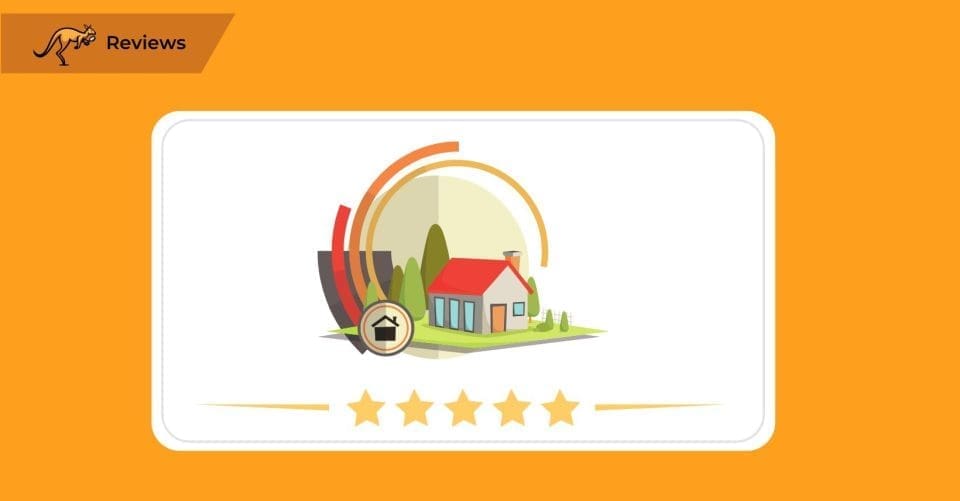The value of real estate leads is undeniable in today’s market.
They are crucial for expanding your business and attracting potential buyers. Generating these leads requires understanding various techniques and strategies.
Once mastered, this process can establish your presence in the local real estate scene.
How do you approach real estate lead generation, and what methods prove most effective?
Now, let’s explore what real estate leads entail.
What are Real Estate Leads?
Real estate leads are potential customers who have shown interest in your services, which form the foundation of business growth and client acquisition in the real estate industry. These leads can originate from various channels, such as social media followers or direct inquiries.
Generating leads is crucial for expanding your client base and increasing business opportunities. Effective lead generation ensures you attract genuinely interested individuals to your real estate offerings.
This diversity in lead sources provides numerous avenues to acquire potential clients. However, securing these leads requires proactive effort.
Understanding the best methods to attract and convert these leads is essential to maximize these efforts.
Real Estate Lead Generation Strategies
Real estate leads vary widely, necessitating diverse techniques for effective lead generation. Some smaller real estate agents opt for focused strategies rather than trying to juggle multiple approaches simultaneously.
Real estate professionals employ various methods to market themselves to their target audiences, with SEO, paid advertising, social media marketing, and email campaigns proving most effective for consistent lead generation across different market segments.
However, achieving this goal is futile without steady real estate leads. Your real estate agent business requires a viable marketing approach.
Search Engine Optimization
Search engine optimization (SEO) is integral to lead generation across industries, including real estate.
SEO enables precise audience targeting and customizable business presentation for real estate businesses, which attracts qualified property buyers and sellers through optimized local keywords and relevant content that matches search intent, all while maintaining affordability and expanding lead options.
SEO is more than just a technique; it is the backbone of many marketing strategies.
What is SEO?
SEO is about adjusting how your site appears on search engines to boost your rankings and show up higher in relevant results. To attract leads, you need to place your business where customers can find it, and SEO excels at this.
Enhancing your search ranking and site quality helps you appear in the search results you want to target.
By refining your site’s display on search engines, you can attract potential customers interested in your real estate options, reducing wasted marketing efforts on visitors who aren’t likely to become paying customers.
How does SEO offer more leads?
The real estate industry leverages SEO to achieve two main goals. First, SEO promotes your business to seller leads by tying your brand to specific keywords, ensuring you appear in related search results more frequently.
Second, SEO for Real Estate minimizes mistakes by refining who sees your site and why.
For instance, SEO helps you generate real estate leads by targeting people interested in buying and selling property, allowing you to focus your sales efforts on potential customers.
Paid Advertising
Paid advertising can be a powerful real estate lead generation tool, offering an easy way for real estate agents to start generating leads almost immediately. This provides a steady stream of new clients and potential leads, all targeted directly. New agents with limited budgets might need to manage their ad spending carefully.
Still, it’s an effective way to capture high-quality leads that others might miss. By advertising to prospective sellers, you can project your business image and message, making paid ads a strong tool for capturing leads in specific niches and for broader digital marketing needs.
In addition to SEO, understanding how these ads work can give your business an edge in attracting clients.
How do paid ads help?
Paid advertisements expand your real estate business, showcasing you as a professional worth considering. Generating online leads involves delivering the right message to the right customer at the right time, making paid advertising effective.
Ads running for specific keywords people search for can passively bring in new clients. Strategic targeting of relevant keywords boosts trust, builds brand credibility, and attracts quality leads.
Optimizing paid digital marketing involves tweaking keywords and ad text to target certain markets and gather qualified leads from key niches.
Paid advertising strategically targeted at relevant keywords can significantly increase trustflow with potential clients, enhancing brand credibility and attracting quality leads.
Retargeting users who visited your site but didn’t convert keeps your brand in their minds, increasing conversion chances. A/B testing different ad versions helps refine your strategies, leading to better results.
Cold Calling
Cold calling, though often disliked, can be effective. Agents use it to get direct attention from those who haven’t shown interest. At worst, it may drive away someone who is not planning to use your services.
However, with careful planning, targeting key people can turn cold leads into valuable warm prospects.
Researching prospects before calling makes a significant difference. Understanding their needs tailors your pitch, making it more engaging. Follow-ups are crucial, as they show persistence and build trust.
Tracking interactions ensures effective reconnections. Training with scripts helps agents handle objections, enhancing confidence and call outcomes.
Email Marketing

Emails are a good cold-call method. Successful real estate owners use partially personalized emails to build a personal connection with potential clients. While not always effective, email offers flexibility and a direct customer approach, making a significant impact when used correctly.
Email marketing allows audiences to be grouped by interests, behaviors, or buyer journey stages. Personalization increases engagement, with automated sequences nurturing leads over time.
Tracking metrics like open rates and click-through rates helps refine strategies. Testing subject lines, designs, and calls to action improves email effectiveness.
Phone Calls
Cold-call phone calls, though annoying, are direct ways to claim seller leads. Random calls are ineffective, but targeting interested individuals can be useful. Direct lead generation through phone calls offers a chance at exclusive leads despite the risk of pushing away some potential clients.
Timing matters. Calling at the right times can improve responses. Scripts help but should sound natural. Engaging prospects in conversation and listening actively sets you apart. Tracking interactions and timely follow-ups enhance effectiveness.
Live Chat
Live chat prompts on your website can draw in potential clients. A chat bubble can engage users lingering on a page, guiding them into your sales funnel. This prompt can bring users back to their tasks if they have forgotten about the page.
Live chat offers instant communication and provides immediate help. Personalizing interactions and using chatbots for initial inquiries can improve user experience. Analyzing live chat data helps improve website content and structure.
Social Media Marketing
Social media serves as a powerful platform for real estate lead generation, where agents can showcase properties, build relationships, and establish industry authority through visual content. Consistent posting and interesting content can draw in your target audience, offering a path to free leads and customer interaction. Most social platforms also offer paid advertising to promote your brand further.
Social media showcases your brand’s personality. Sharing client testimonials and success stories builds trust. Hashtags expand reach. Video content attracts attention, showcasing expertise. Analyzing social media data informs content strategy, improving posts for better engagement.
Social Media Posts
Regular social media posts capture new business opportunities, and buyer leads in untapped markets. Effective use of hashtags and keywords makes a long-term difference. Engaging content can go viral, bringing more users to your account.
Consistency in posting keeps your audience engaged. Interactive posts boost engagement. Collaborating with influencers expands your reach. Responding to comments and messages enhances interaction.
Social Platform Flexibility
Social media offers various options for building leads. Posting different content, engaging with customers, and promoting business aspects generate leads from varied audiences.
Platforms often appear in search results, giving them additional visibility. Analyzing social media data helps understand audience behavior and refine a content strategy for better results.
Let’s examine what others think about these strategies and their effectiveness. Their experiences and feedback will provide valuable insights.
Reviews

Many people underestimate the usefulness of customer reviews in real estate lead generation. A good review is not just feedback; it promotes you and captures potential clients who might have overlooked your business.
New customers respond well to reviews from past clients. Reviews compare you to other agents and encourage potential clients to choose you over just browsing.
A good review can make all the difference. Reviews let clients see your success through others’ eyes. They can push someone from just browsing to taking action. This brings us to the key elements that make reviews impactful.
Let’s look at the factors that shape effective reviews as we move forward.
Positive Reviews
A positive review of your business will generally be posted on a review site. However, you can link to it from your site to fill a landing page with positive feedback. However you handle it, this review will be something that customers will see.
Suppose a potential customer finds that the majority of your reviews are positive. In that case, they will likely choose you as their real estate agent.
This becomes even more likely if the positive reviews have extra details, like breakdowns of your great services or positive feedback toward a particular real estate agent working at your business.
If somebody sees these reviews and develops a stronger interest in your business, that is a lead opportunity. The more positive reviews you can present to customers, the more likely you will sway their opinion in your favor.
Negative Reviews
Negative reviews are the exact opposite problem—you want to deal with them as soon as possible before new leads see them and have their opinion of your business soured. You can do this by approaching the person who left the review and offering some kind of compensation or deal to try to turn it around.
If you made a mistake during an open house tour, promise something to make up for the difference.
Pay them for small renovations you did not mention while showing them open houses, or give them a partial refund on additional services they could never use. Do whatever it takes to get that negative review taken down.
It is much harder for a business to get positive reviews than negative ones, so you should always strive to remove negative feedback whenever possible.
Deleting it is not a good idea, though—it will affect your business. Instead, find a compromise and show your potential clients you are willing to work hard for maximum customer satisfaction.
Review Impact
Not all reviews are as important as others. Posts in small Facebook groups might not be significant. Still, reviews that appear during Google searches can be a serious concern.
No business is completely free of criticism—prioritize review management based on the ones that will most impact your business.
Make Basic Site Improvements
Even small changes to your site can make a huge difference. Lead generation is all about trying to nudge possible customers into becoming paying clients, and having a good site can speed up this process.
Remember that your site is usually the deciding factor for many people. While a bad social media presence is forgivable, and not all ads will be that appealing to everybody, a bad site can almost slash your number of prospective customers in half.
Very few people will be willing to trust a site that looks like it was coded from scratch by one person with barely any experience. Even if your site looks good, any major issues with navigating the layout or accessing important information can be a “quit moment” for many people.
Aesthetics
Make a decent-looking real estate agent site. Real estate lead generation is not easy, but it becomes even harder if you lead people to a website they can’t trust due to its appearance.
Sprucing up the visuals and adding more professional elements can be the best way to ensure your site looks more up-to-date, which will help secure picky clients.
If you want to avoid your site looking like it could be hosting all kinds of viruses, it needs to look well-maintained and fit in with current expectations of how a site should look.
Usability
There is no point in drawing clients in with a site they cannot use properly.
Bad site usability—poor navigation or just poor clarity from your aesthetic choices—will make converting new leads into clients much harder.
Improving site usability should always be a priority. Even if it does not generate new leads, it can at least make your existing leads much easier to capture and prevent you from losing as many leads due to your site’s poor design.
Mobile Device COMPATIBILITY
Many people forget that mobile devices are a huge part of every market, including real estate.
There is a reason so many real estate sites have alternate mobile versions or responsive designs that can fit any screen size—many real estate lead generation opportunities rely on the mobile market.
Mobile compatibility is important. Suppose new users can’t visit your site properly with their phones, let alone use advanced features. In that case, many will simply look for another site they can use.
Few people will have another readily available device; even fewer will want to switch over. In most markets, a bad first impression on mobile devices is an instant loss of countless high-quality leads just a few clicks away from your sales funnel.
Planning
Having a proper plan is essential for successful real estate lead generation, which should include defining target markets, setting measurable goals, allocating appropriate resources, and implementing tracking systems to monitor performance and adjust tactics accordingly.
In general, generating real estate leads is an incredibly useful option that comes with some serious risks and concerns. If you try to generate real estate leads incorrectly or dedicate too much of your budget to the wrong market, you can end up harming your business more than you help it.
Goals
Set yourself both short-term and long-term goals for your lead generation strategy. For example, maybe you want to sell a certain number of open houses to turn every current open house into a sale.
These goals do not have to be all about sales, either. Perhaps you want to focus on your real estate marketing first, ensuring you can get more wannabe property owners into the open house showings faster.
Markets
Real estate agents must identify and segment their target audiences based on demographics, buying behaviors, and property preferences, which allows for tailored marketing messages that resonate with specific buyer and seller groups. Real estate is a complex market with many different factors to consider, and the most important one is always the market itself.
Real estate agents can attract more seller leads by targeting homeowners in neighborhoods with high turnover rates, offering free home valuation services, creating specialized content addressing seller concerns, and maintaining relationships with past clients who may refer additional sellers to your business.
The best real estate lead generation ideas for your situation will depend on who you are targeting. You need to think about the overall audience you aim for and what methods would most likely appeal to them.
Listings
Remember that listings are for each home, so consider how you’ll market them. If you market an entire house as part of a campaign, remember the house will eventually sell.
Focusing your marketing on specific homes can showcase the best of what you offer, but you’ll need to replace sold listings with new ones.
On the other hand, reaching out to expired listings can connect you with homeowners frustrated that their homes didn’t sell, giving you a chance to re-engage them for another sale.
As you refine your marketing strategy, it’s also important to consider other aspects of the real estate business that can enhance your success.
Other Things to Consider as a Real Estate Agent
When working with real estate lead generation ideas, many factors come into play in generating your leads. Each factor can vary in its impact on your marketing efforts. Some can significantly influence your success, while others might seem trivial until they become obstacles.
But beyond these factors lies a world of innovative strategies. Exploring different tactics can provide unexpected advantages, setting you apart from the competition and opening doors to methods you might not have considered before.
Unconventional Lead Generation Methods
Real estate professionals can employ unconventional lead generation methods such as hosting community events, targeting expired listings, partnering with local businesses, and offering property management services, which reach prospects that traditional marketing might miss. Tips alone can’t capture the variety of methods available, especially when considering smaller target audiences.
For example, rural clients need different marketing strategies than those interested in city apartments. Using former clients as a model might not clarify things either.
Hosting community events to promote properties or offering to buy and refurbish distressed properties can be effective. Targeting local businesses for commercial land sales or pursuing expired listings can bring past clients back. There’s no perfect approach, and methods influence the type of leads you get.
For instance, how your multiple listing service handles expired listings can alter your lead generation strategy. Each agent, estate liquidator team or company approaches lead generation uniquely. This applies across industries, from divorce lawyers to blog owners.
To truly refine your lead generation strategies, it’s essential to understand what drives your audience’s decisions.
Audience Intent
Not everyone interested in real estate investing wants to own a home. Some might rent it out, convert and resell it, or turn it into a commercial business if they get the legal rights and approval.
Similarly, in sales, while most people sell to move on from their homes, not everyone who sells is buying another home. Some sellers might be rental property owners looking to offload unoccupied or no longer profitable buildings. This allows you to target different audiences based on your business goals.
Commercial real estate leads require specialized targeting approaches where agents focus on networking with business owners, monitoring business expansion news, connecting with commercial property investors, and creating content that addresses specific commercial property concerns such as zoning regulations and ROI potential.
Changing tactics can open up new markets or audiences you hadn’t considered before, especially when dealing with complexity.
Complexity
One major factor in real estate lead generation is the complexity of the methods. Some businesses might succeed with just one or two key focuses. In contrast, others may prefer to explore every potential niche for lead generation.
There’s no perfect way to approach this, so you can use any ideas here according to your business needs. The main risk with multiple lead generation strategies is the time required.
Lead generation typically demands active oversight, ensuring everything works as intended. Small businesses might need to balance several options to maintain multiple lead sources.
Consider the next steps to make the most out of these ideas and ensure your lead-generation efforts are effective.
What To Do Next
Once you’ve established the basics of lead generation, deciding your next steps can be challenging since there’s no perfect answer.
Whether you stick to simple methods or try something creative like setting up Facebook groups to market your services or adding a sign-in sheet to collect consumer data, you’ll work on your terms.
Put yourself in the shoes of a seller or buyer’s agent. Consider what would satisfy you during negotiations and what extra steps you could take. Think about the services you might offer.
Even if you aim to lead in housing sales, remember you can also serve as an estate liquidator or in other roles targeting a unique audience.
By considering these options, you’ll be better prepared to explore ways to attract potential clients.
Lead Generation for Real Estate Agents
Groups like the National Association of Realtors influence the market like larger market leaders. However, your focus should be on your marketing, not theirs. This advice will help you excel in lead generation.
Still, your strategy must fit your unique business, team, or solo operation. Copying an existing strategy might not yield the best results.
Instead, carve out your niche, avoiding direct competition with large companies. You might not overpower market giants, but you can find and claim market gaps they leave behind.
Lead generation is challenging for any company and won’t be easy initially. Embrace each setback as a learning opportunity to improve your marketing, especially when you’re eager for more leads and customers.
Your final strategy should perfectly suit your business. Plan thoroughly, then adapt as you encounter new challenges.
Consider how link-building agencies can enhance your real estate leads by exploring untapped potential and leveraging strategic partnerships.
How Link Building Agencies Enhance Real Estate Leads
Link-building agencies increase real estate leads by boosting your website’s visibility and authority through strategic backlink acquisition from industry-relevant websites, which enhances search rankings and drives qualified traffic from potential buyers and sellers. By securing high-quality backlinks from reputable websites, these agencies help improve your site’s search engine rankings, making it easier for potential clients to find you.
This increased visibility drives more traffic to your website, resulting in more inquiries and leads. Additionally, link-building agencies use strategies like guest blogging, content creation, and outreach to relevant industry websites, further establishing your online presence.
With a stronger online footprint, real estate professionals can attract more qualified leads, boosting their business growth.
Choosing the right partner for link building is essential for generating leads efficiently. Searcharoo stands out with proven strategies and results for those seeking a reliable link-building partner.
Why Choose Searcharoo as Your Link-Building Partner for Lead Generation
Choosing Searcharoo as your link-building partner for lead generation offers numerous advantages. We have a proven track record of delivering high-quality backlinks that significantly improve search engine rankings and drive targeted traffic.
Our team of experts understands the unique challenges of the real estate market and tailors our strategies to meet your specific needs.
By leveraging our extensive network and industry expertise, we ensure your website gains visibility on reputable platforms, enhancing your credibility and attracting more potential clients.
Moreover, our transparent and data-driven approach allows you to track progress and measure the impact of our efforts, ensuring you get the best return on your investment.
Maximizing Real Estate Lead Generation
In conclusion, effective real estate lead generation relies on a multifaceted approach, blending traditional and modern techniques to reach potential clients.
SEO, paid advertising, cold calling, email marketing, social media engagement, and positive customer reviews are all critical components in this process. Each strategy enhances visibility, builds credibility, and drives traffic to your site, ultimately leading to more inquiries and sales.
Choosing the right link-building partner can significantly impact your lead generation success. Searcharoo, with its proven strategies and expertise in securing high-quality backlinks, offers a robust solution to enhance your online presence and attract qualified leads.
By leveraging Searcharoo’s services, you can ensure your real estate business stands out in a competitive market, driving growth and achieving your business objectives.
Explore the benefits of partnering with Searcharoo and take your lead generation efforts to the next level.





